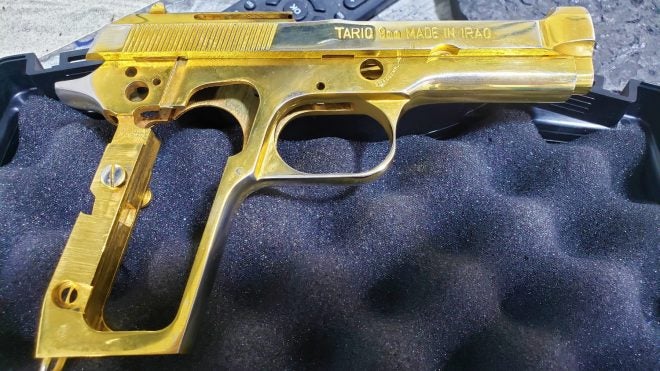In Part One of this article, I shared my experiences after visiting gun stores in Baghdad, and it is not what most people expect to see in Iraq. Gun stores are small and cramped, with a relatively limited choice of firearms and really high prices. Thankfully, things in Iraqi Kurdistan are way different.
To explain the difference, let’s first look at the phenomenon of Iraqi Kurdistan as a whole. Iraqi Kurdistan is an autonomous region within Iraq, inhabited by Kurds, the biggest ethnic minority of the Middle East that doesn’t have its own state.
The difference between this region and the rest of Iraq is staggering. The two biggest cities, Erbil and Sulaymaniyah look like they could be located in UAE or Jordan. Clean streets, modern glass buildings, nice cars, beautiful restaurants, and plenty of bars and liquor stores make this place feel like a tourist destination, especially compared to other cities in Iraq.
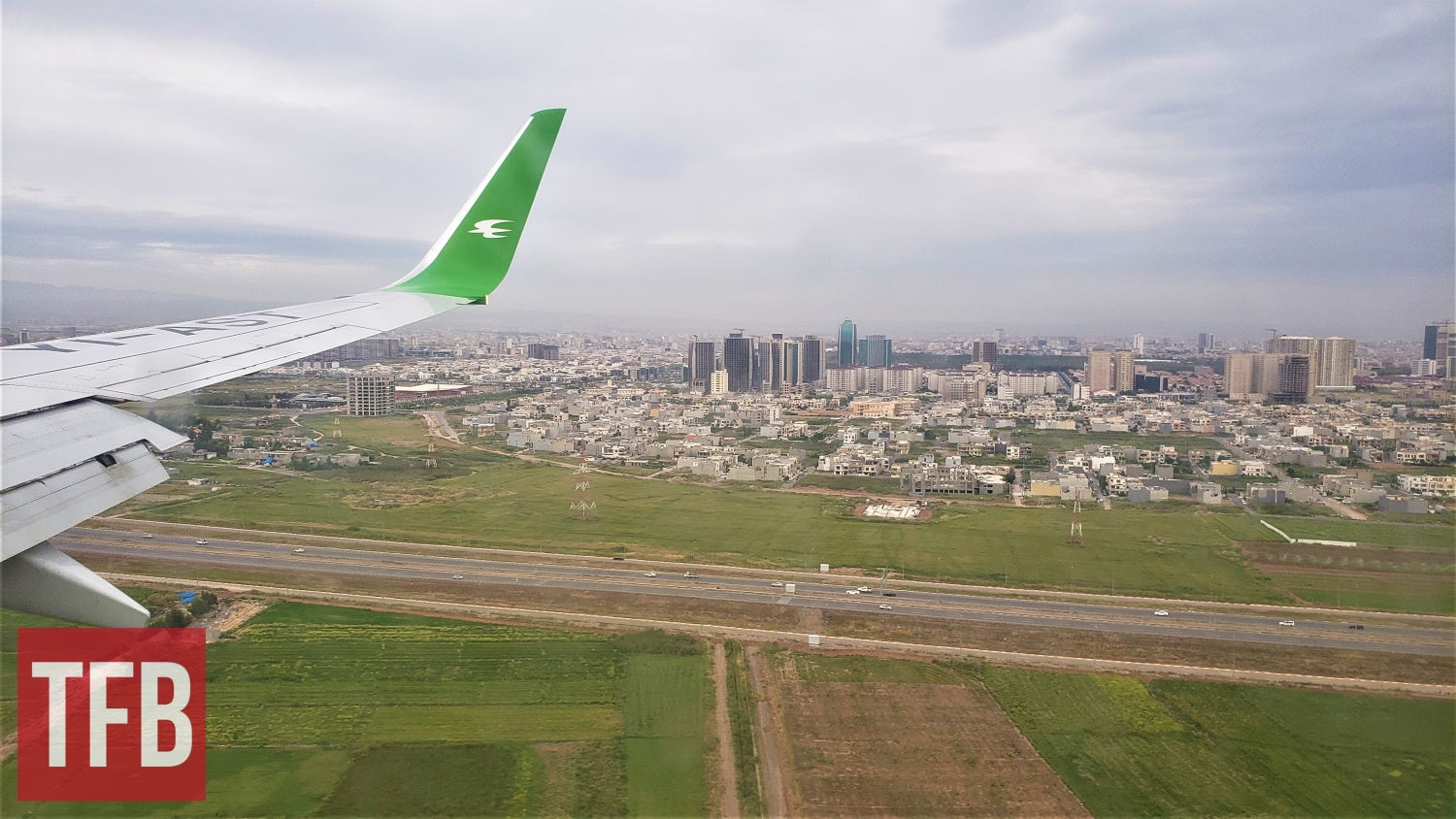
Downtown Erbil from a plane. Not your typical Iraqi city.
The gun culture is also completely different compared to the rest of Iraq, to the point that some gun shops became tourist destinations for foreign travelers. One of the main streets of the city that leads to the Citadel, an ancient 6000-year-old fortress, looks like one big military equipment shop.
In every store, you’ll definitely find three things – the “Call of Duty” Ghost mask, Glock full auto conversion adapters, and Glock rubber sleeve grips. The equipment you see is mostly cheap Chinese and Turkish-made stuff, there are tons of fake 5.11 clothing and even boots called MERRLLE.
The most famous gun store in the area is the repair shop owned by Bahktiyar Sadr-Aldeen, which showcases an incredible collection of weaponry. I first visited that place in 2017 and later told my friend and fellow TFB author Miles Vining about it. He made a really cool video about that place.
But Bahtiyar’s shop isn’t the only remarkable gun store in Erbil. The other one is less famous but certainly deserves recognition.
The name of it is “The Glock Shop”, but it is so much more than just a store. On the first floor, there is a large showroom with a great selection of spare parts and accessories. The selection is so good that I managed to find a set of the sight for a broken Walther P99 I had to fix, not something you can easily find in the Middle East.
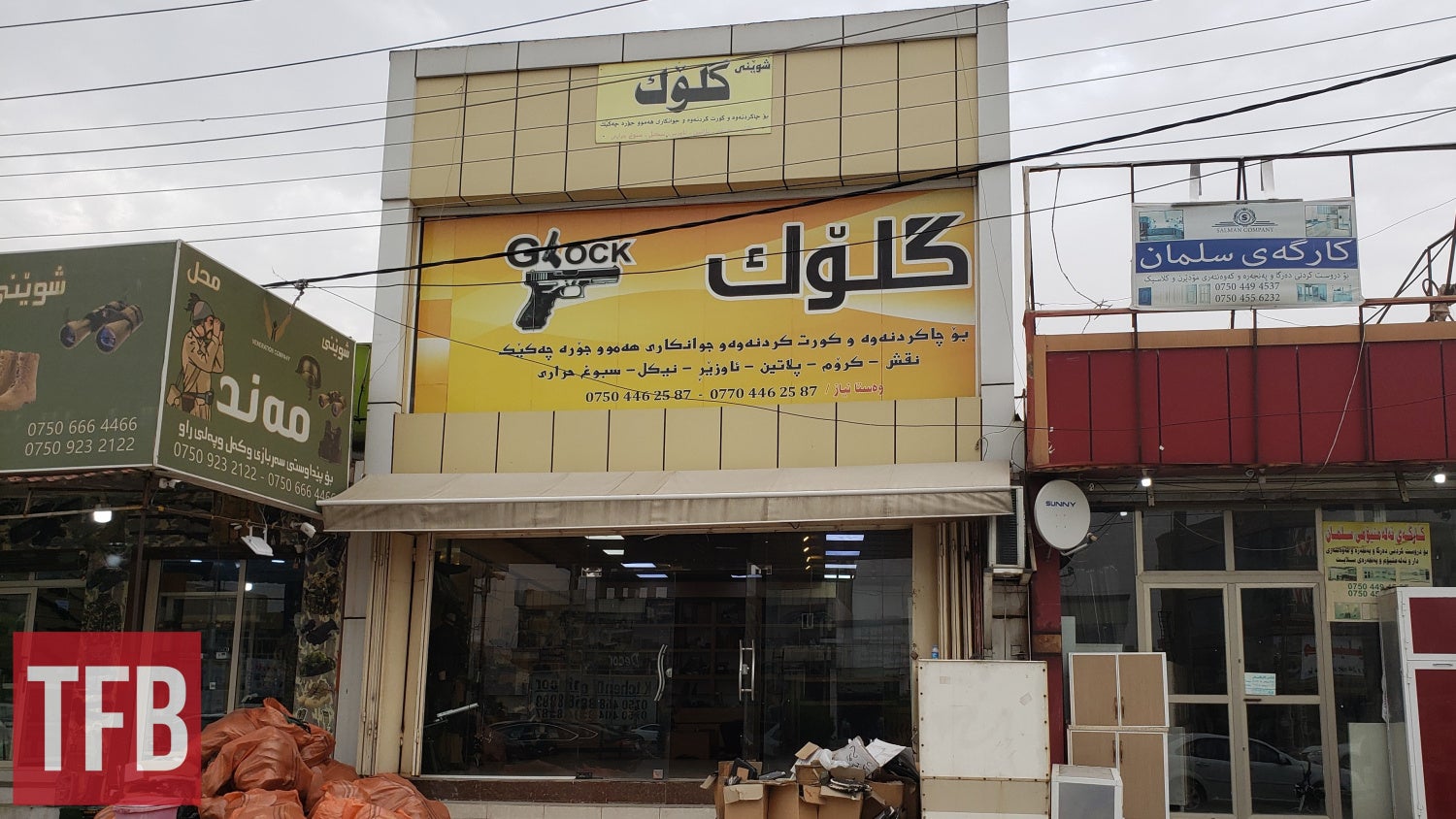
On the second floor, there is a very impressive manufacturing facility with modern CNC machines and a full setup for gold/chrome plating as well as equipment for more conventional finishes.
The owner of the store is a true master of his craft and his work is, in my opinion, simply breathtaking. In one of my previous articles, I already published pictures of my favorite pistol he worked on, a beautifully decorated Browning High Power. Another gun from his shop, the gold-plated Iraqi Tariq is pictured below.
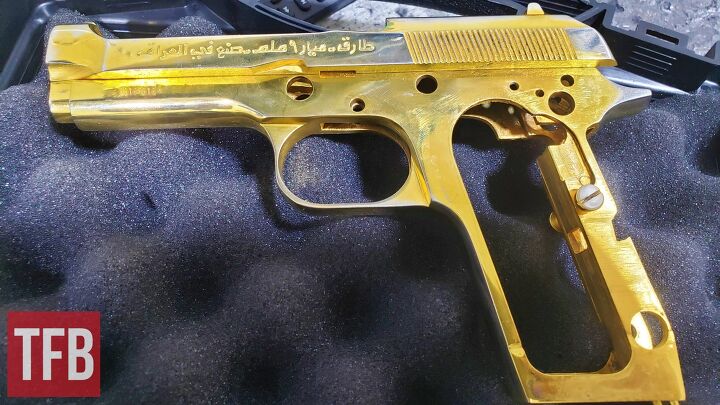
Gold-plated Tariq pistol from the “Glock store” in Erbil
But the pinnacle of the Erbil gun trade is the open-air market near the Erbil Martyrs Monument. The visit to that place was one of the most remarkable experiences of the entire trip. You get off the main road in the outskirts of Erbil and drive on the dirt road for a few minutes until you see a small and hidden valley on your right side.
That valley is filled with tiny makeshift sheds showcasing the most incredible selection of weaponry. Upon arrival, we were greeted by an “administrator”, a cheerful and incredibly hospitable young man who asked us about the purpose of the visit. To my surprise, he was happy to show us around, on one condition – no pictures or videos.
The previous iteration of this market was filmed a few years before by an American TV crew, which led to the closure of the original establishment by the authorities. Later on, the market relocated to the current place, but people with cameras are not welcome anymore. So, I promised my host not to film anything, but you can feel the vibe of the place in this video taken in the old location.
The selection is quite impressive – Chinese bullpups that I’ve never seen before, AK103 with the 3-round burst mechanism, a distinctive mark of rifles made for the Libyan dictator Muammar Gaddafi, countless Turkish copies of Glock pistols, and obviously, plenty of AKs, so many AKs from all around the world – Romania, Hungary, Poland, Yugoslavia, Egypt, USSR, China, and Iran as well as Makarov pistols, the old ones, with 8-round single-stack mags and the new ones with the double stack 12 rounders.
The vendors were very friendly and gladly shared the info about the prices. After we went around the market, I offered some money to the “administrator” who was our host, and he gracefully but very decisively refused, saying that he was happy to show around a fellow gun enthusiast.
One more unique type of handgun you see in Iraqi Kurdistan is cheap Turkish-made pistols that don’t even copy any existing design. Generally, those pistols lack any serial numbers at all. The retail price for one of those is generally around $150-$200. Often, locals buy it as a truck gun that they wouldn’t worry about in case someone steals it from their truck.

One of many cheap Turkish pistols sold in Iraqi Kurdistan
There is another fascinating gun market in Kurdistan, located in the second biggest city of the region, Sulaymaniyah, often called Sully. This market is even more welcoming than the one in Erbil and has even lower prices.
Before the trip, I reached out to one of the shop owners on Instagram, and he explained to me how to get there. The Sully gun market is close to the old Bird market and another marketplace where you can exchange different kinds of currency.
When you approach the market, you start to see posters on the walls, and even for those who don’t speak Kurdish, the content of the ads is very much self-explanatory.
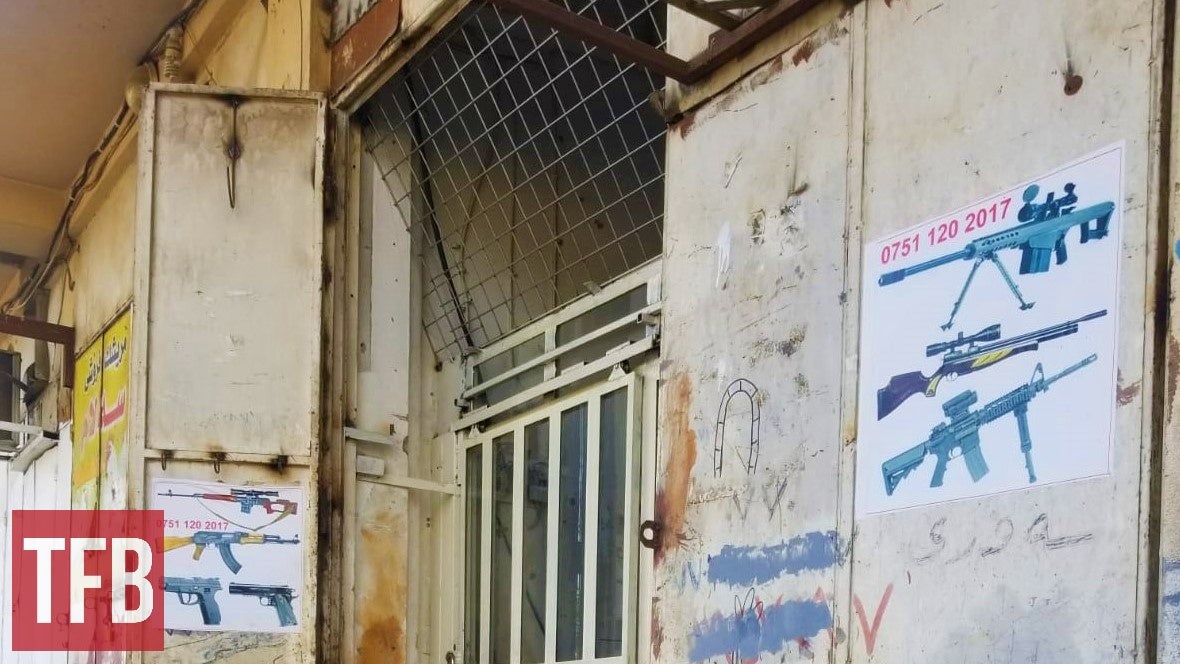
You enter a narrow street and start seeing rifle barrels peeking out of the shops right and left. Some shop owners don’t want you to take pictures, while others welcome you with open arms.
The selection of AKs beats most museum collections, and prices vary from $300 for a Chinese AK to $500 for an Iraqi Tabuk and $850 for a nice-looking Hungarian AKM in almost pristine condition.

Selection of full-auto AKs in one of the shops
Glocks are significantly cheaper in this part of Iraq. In Baghdad, a Glock will sell for $4000-$5000, but in Kurdistan, you can get one for $2200. A decent Turkish-made copy of a Glock, compatible with Glock slides, frames, and magazines retails for $1200.
The Russian SVD sells for $2000 with an original scope, and Romanian PSLs are even cheaper. The VZ 58 is available but severely underrated, you can buy one for just $270 since no one wants to buy the proprietary magazines that don’t fit the AK.
Some guns are quite expensive – you can find a full auto AKS74U for $3000 and a brand new Russian Sherif rifle made by Orsis sells for $4000.

SVD and Orsis “Sherif” rifle on display in one of the shops
I spent a lot of time drinking tea with local vendors, and I couldn’t help but feel bad for their situation. The local government calls them smugglers and gradually restricts the sales, but doesn’t provide any legal alternatives for the importation of firearms. The demand is huge, and the population, as well as government forces, rely on gun dealers for weapons and spare parts, but those same agencies would often close down the shops and confiscate the stock.
Gun dealers do their best to make sure guns won’t end up in the wrong hands but still remain in the grey area without any protection of the law and order.
But when the next war comes, those same gun dealers will supply local militia called Peshmerga, they will fix their weapons for free and sell ammo at cost price, just like it was during the war with ISIS. And then relative peacetime comes back, and those same dealers will be called smugglers again and treated as criminals. A long vicious cycle that never ends.
If you want to know more about the Iraq firearms industry, check out this TFB B-Side Podcast.
 Your Privacy Choices
Your Privacy Choices
